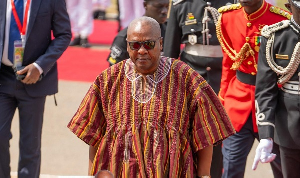Elementary teachers in public and Catholic schools in the Ontario Province of Canada have declared their intention to hold a strike vote during the beginning of the school year under the leadership of their union.
The union told its members in a memo obtained by The Canadian Press that the government has shown "little interest in engaging in substantive negotiations" and little progress has been made. Public elementary school teachers in Ontario are taking a step toward a strike, with the union announcing a week before the reopening of schools in the Ontario Province of Canada that it will be asking members to vote for a strike mandate.
The president of the Elementary Teachers' Federation of Ontario told members at the union's annual general meeting that the union has come to the bargaining table with proposals on special education, class sizes, violence in schools, and wages that keep up with inflation.
In response, she said, the government has "refused to meaningfully engage" and has put forward proposals that are tantamount to cuts to salaries, benefits, and working conditions.
The Ontario Secondary School Teachers' Federation said it, too, will hold strike votes this fall. The union told its members in a memo obtained Monday by The Canadian Press that the government has shown "little interest in engaging in substantive negotiations" and little progress has been made.
However, the Ontario Education Minister Stephen Lecce has criticized the steps taken by the unions, saying they rejected private mediation to reach deals.
"Threatening another strike and creating anxiety for parents and students just weeks before the start of the school year is unnecessary and unfair," he wrote in a statement.
Unfortunately, all four major teachers' unions in Ontario have been in bargaining with the government and school boards since last summer, and just a few weeks before the start of a new school year, none had indicated they were close to a deal.
In Ghana too, members of CETAG are reported to have embarked on an industrial strike since August 1, 2023, to impress upon the government to adhere to their negotiated conditions of service.
The ‘Colleges of Education Teachers Association of Ghana (CETAG) served notice of their intentions to withdraw services effective August 1, 2023.
Their decision follows the non-compliance of the government to implement the National Labour Commission’s (NLC) Arbitral Award Orders and the negotiated conditions of service since May 2, 2023.’
Fortunately for parents in Ghana, the industrial action was eventually called off following interventions by the National Labour Commission which subsequently saw the introduction of compulsory arbitral orders for new conditions of service for CETAG. The stoppage of academic work is the main effect and impact of the strike on education in Ghana.
This results in school closures and, in certain cases, the end of the academic semester. After the strike, students return to class with heavy loads of lectures to catch up on. This usually results in poor exam performance.
As a parent and educator, I plead with governments around the world to take the formal sector of education in the countries seriously by ensuring that their education budgets are sufficient to support students and teachers in their schools.
When teachers go on strike, students are likely to be affected by school closures and disruptions to their education. If the strike lasts for an extended period, students can fall behind in their studies and have trouble catching up.
Opinions of Friday, 8 September 2023
Columnist: Joseph Kingsley Eyiah



















